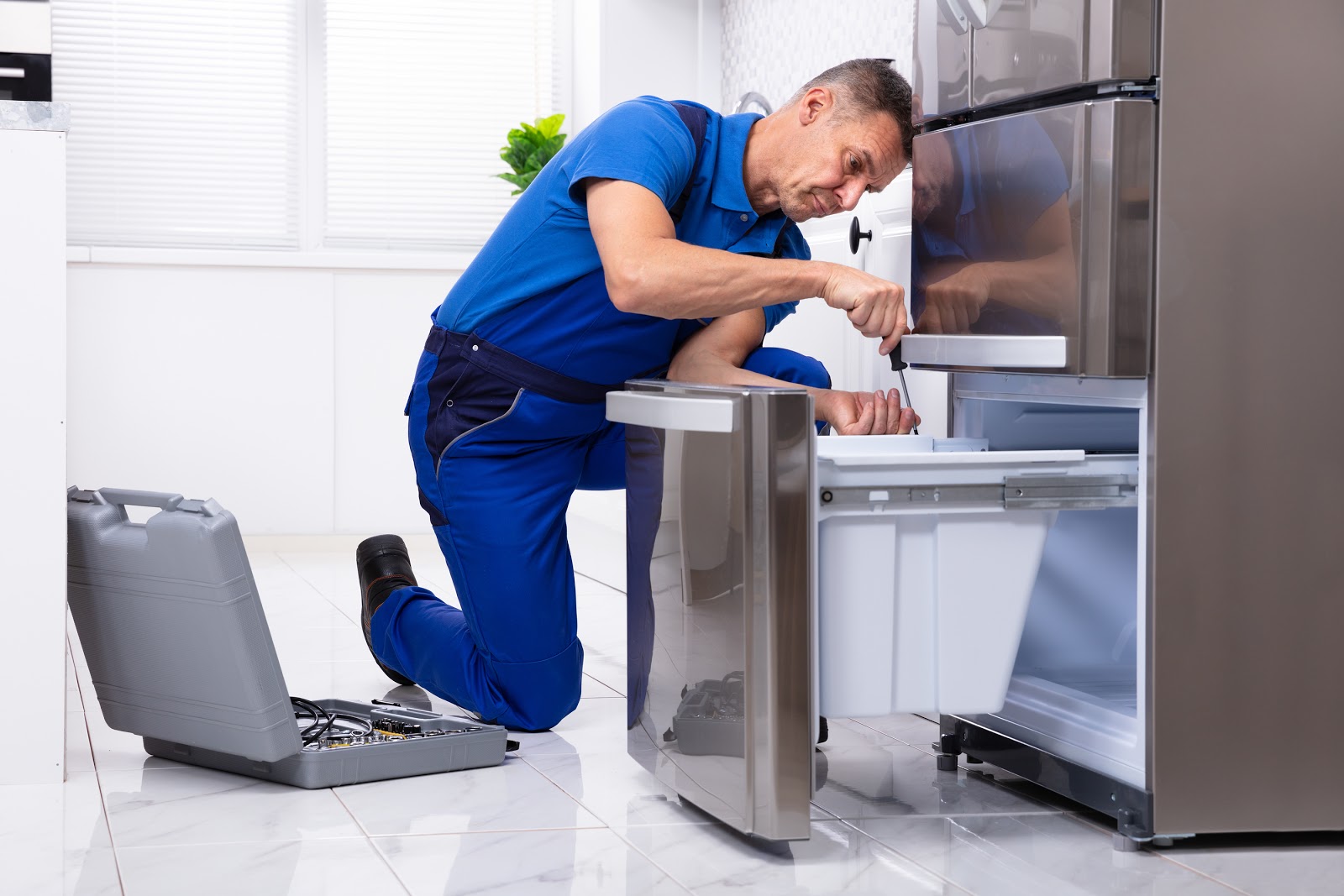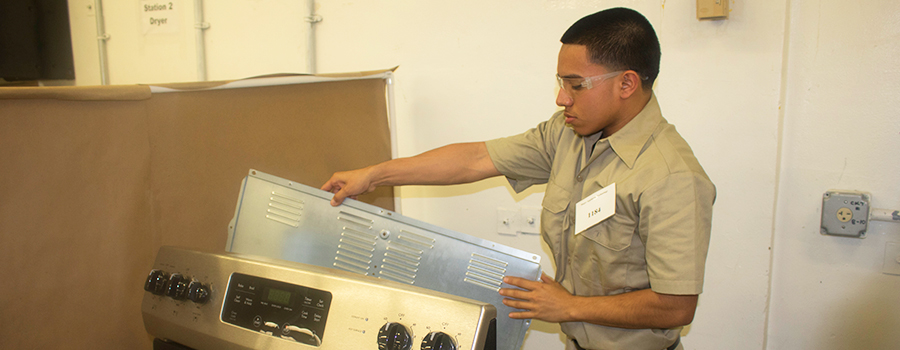What Appliance Repair Oro Valley Dependable Appliance Services Wants You to Know About Preventing Sudden Breakdowns
Vital Tips for Effective Ref Fixing to Extend Appliance Life-span
When it comes to your refrigerator, appropriate repair and upkeep are essential for longevity. Understanding typical troubles and knowing when to act can make all the difference.
Recognizing Common Refrigerator Problems
Refrigerators are necessary in maintaining your food fresh, however they can run into an array of common troubles that interrupt their efficiency. If you discover food ruining quicker than usual, check the thermostat settings or take into consideration if the door seals are damaged. Acknowledging these issues early can save you time and cash in repair services, ensuring your refrigerator runs efficiently and efficiently.
Routine Upkeep Practices
To maintain your appliances running efficiently, you need to remain on top of routine upkeep practices. Clean the condenser coils, inspect the door seals, and keep an eye on the temperature settings to guarantee peak performance. These straightforward tasks can conserve you money and time on repair work down the line.
Tidy Condenser Coils Frequently
Cleansing your condenser coils on a regular basis can considerably improve your home appliance's performance. Dirt and dust develop up on these coils over time, causing your device to function tougher and eat more power. To keep them tidy, unplug your appliance and meticulously eliminate any kind of protective covers.
Inspect Door Seals
3 straightforward actions can assist you ensure your device's door seals are in excellent condition. Second, clean the seals using warm, soapy water to eliminate any particles or gunk. By complying with these steps, you'll keep your appliance's performance and long life, saving you cash on energy costs and fixings in the lengthy run.
Monitor Temperature Level Setups
Consistently monitoring your appliance's temperature setups is crucial for best efficiency and effectiveness. Whether you're taking care of a refrigerator, fridge freezer, or stove, watching on these settings can prevent numerous issues. For fridges, goal for temperature levels between 35 ° F and 38 ° F; for freezers, stick around 0 ° F. If the temperatures are too expensive or reduced, your appliance may function harder, wasting energy and reducing its life-span. Use a thermostat to examine these setups routinely, particularly after major modifications, like moving your device or changing the thermostat. If you see fluctuations, adjust the settings appropriately and get in touch with the customer handbook for assistance. By remaining proactive concerning temperature tracking, you'll guarantee your devices run smoothly and last longer.
Fixing Air Conditioning Problems
When your refrigerator isn't cooling down effectively, it can bring about ruined food and squandered cash, so attending to the issue quickly is vital. Start by examining the temperature settings to verify they're at the recommended levels, normally around 37 ° F for the fridge and 0 ° F for the freezer. If the settings are proper, evaluate the door seals for any gaps or damage; a faulty seal can enable warm air to enter.
Examine the condenser coils, normally situated at the back or bottom of the device. Clean them with a vacuum or brush to optimize efficiency. If troubles linger, it may be time to call an expert.
Repairing Water Leak and Ice Accumulation
If you're handling water leakage or ice accumulation in your home appliance, it's vital to identify the source of the trouble. By identifying where the water is coming from, you can protect against more issues and prevent costly fixings. Let's explore some reliable methods to tackle these usual problems.
Determine Leakage Resources
How can you effectively recognize the resources of water leak and ice build-up in your devices? Start by examining the seals and gaskets on your fridge and freezer doors. A used or broken seal can permit warm air to go into, creating condensation and ice. Next, examine the drainpipe frying pan and water drainage system for blockages or clogs; a backed-up drain can lead to water merging. Look for any type of loosened connections in the water line, which can create leaks. Take a look at the defrost drain for ice buildup, which might interfere with proper drain. By methodically inspecting these locations, you'll pinpoint the source of the trouble, enabling you to take the needed steps to fix it and expand your home appliance's life-span.
Avoid Ice Development
To avoid ice formation in your appliances, start by verifying the temperature level setups are ideal. If your fridge or freezer is as well chilly, it can cause extreme ice accumulation. Examine the door seals on a regular basis; harmed seals can allow warm air in, triggering condensation and ice development.
Keep the home appliance well-ventilated and stay clear of congestion, as this can block air flow - Refrigerator repair experts Dependable Refrigeration & Appliance Repair. Consistently thaw your freezer if it doesn't have an automated defrost feature.
If you notice water leak, recognize and take care of any type of blocked water drainage holes, as they can add to ice build-up. Tidy the coils and confirm they're functioning effectively to preserve peak performance. Taking these actions will aid extend your appliance's life-span and efficiency.
Addressing Noisy Refrigerator Appears
While it may seem disconcerting, a loud fridge frequently signals small concerns instead than major malfunctions. Common perpetrators consist of the compressor, fans, and water lines.
Next, look for loosened products inside. Sometimes, containers or shelves can rattle, developing unwanted noise. Tighten up or reorganize them to remove the sounds.
If you observe a clicking sound, it might be the defrost timer. This is generally safe however can suggest it needs inspection.
An out of balance device can produce vibrations and sound. Best Appliance Repair Near You Dependable Refrigeration & Appliance Repair Service. Resolving these issues quickly can assist preserve your fridge's efficiency and lengthen its life-span.
When to Change Components vs. Full Replacement

However, click to investigate if your device is older and experiencing several issues, a full substitute can be a lot more cost-effective. Consider the price of go to my blog repair services versus the appliance's value. If fixings surpass 50% of a new device's cost, it's normally better to purchase a replacement. In addition, if you observe ongoing problems that maintain persisting, it's a sign that your device has actually reached completion of its life. Evaluate these elements carefully to make the very best decision for your demands and budget plan.
Knowing When to Call a Specialist
How can you tell when it's time to employ a specialist for device repair? If you discover uncommon noises, smells, or leaks, it's a clear signal that something's incorrect. Do not neglect these signs; they often suggest much deeper problems. If your device stops functioning altogether or frequently trips breaker, it's one more warning.
You must additionally consider your own comfort level with repairs. If you're uncertain about identifying the issue or lack the right devices, it's best to connect for aid. Remember, attempting difficult repair work can cause even more damage and even security threats.

Often Asked Concerns
How Often Should I Clean the Refrigerator Coils?
You need to cleanse your fridge Home Page coils every 6 months. This aids keep efficiency and avoids getting too hot. If you observe extreme dust or animal hair, clean them extra regularly to assure your refrigerator runs efficiently.

Can I Use Vinegar for Cleaning My Refrigerator?
Yes, you can use vinegar to cleanse your refrigerator! It's an outstanding natural cleanser that eliminates smells and discolorations. Dependable Refrigeration & Appliance Repair Service LG Appliance Repair. Simply blend it with water, use it to surface areas, and wipe down for a fresh, clean refrigerator
What Temperature Should My Fridge Be Set To?
You ought to set your refrigerator to 37 ° F(3 ° C) for perfect food conservation. This temperature level keeps your food fresh while preventing spoilage, ensuring your groceries last much longer and reducing waste. It's a very easy modification you can make!
Does a Refrigerator Need to Be Leveled?
Yes, your fridge requires to be leveled. If it's unequal, it can influence cooling performance and cause excess noise. Examine the leveling legs and change them to ensure appropriate balance for ideal efficiency.
Exactly How Can I Reduce Fridge Energy Intake?
To reduce your refrigerator's energy usage, keep it tidy and well-ventilated, check door seals for leaks, set the temperature level in between 35-38 ° F, and prevent overwhelming it. These actions can significantly reduce your energy bills.